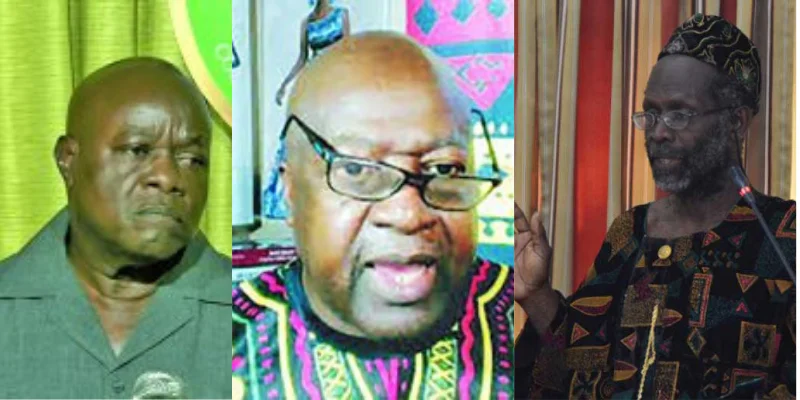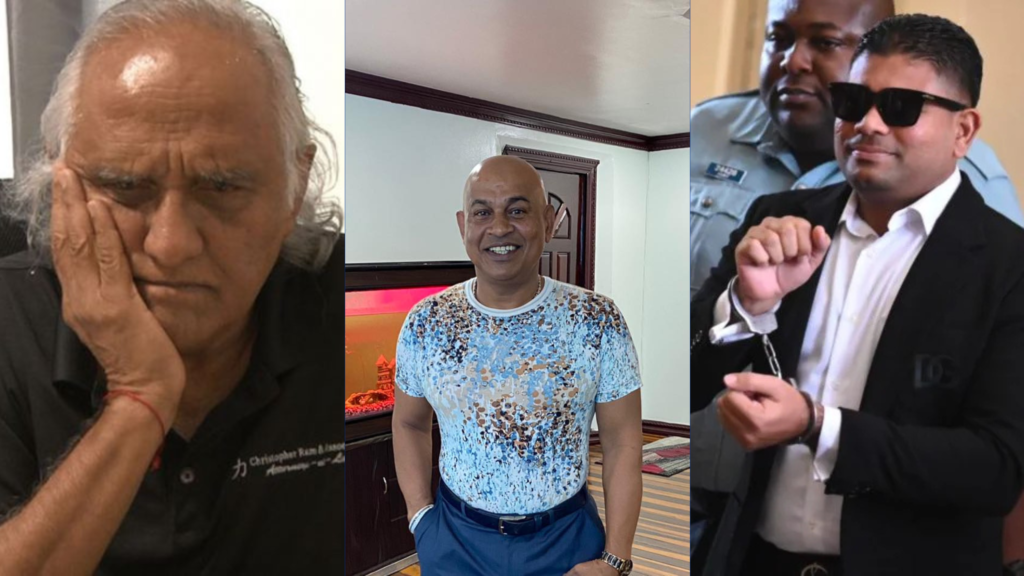In the theater of Guyanese politics, where high drama meets low deceit, some actors cling to the spotlight not to enlighten but to distort, to posture rather than to probe. One such actor is Christopher Ram, a man who has worn every mask—accountant, lawyer, commentator, self-proclaimed moral compass—except that of intellectual honesty.
What began as a supposedly “principled” critique of government has now deteriorated into a compulsive, obsessive campaign that reeks of vanity, not virtue. Ram’s recent wave of baseless assertions, particularly his interpretation of Guyana’s tax-to-GDP ratio in the “Revenue Statistics in Latin America and the Caribbean 2025” report, serves as a sobering revelation. It reveals not a man of insight but a peddler of half-truths, bent on deception.
Selective Reading, Convenient Amnesia
Ram’s critique of the government’s economic management, based on a tax-to-GDP ratio, is weak and lacks financial logic. He quotes selectively, ignoring the disclaimers within the document. The OECD explicitly warns against simplistic conclusions in the LAC context due to variations in economic structure, issues with data harmonization, and the growing importance of non-tax revenue, a category in which Guyana has excelled thanks to prudent oil revenue management.
Yet, in his Sunday sermon, Ram deliberately ignored the fact that adding non-tax revenue ranks Guyana as the third highest in the region. Why omit this? Because it would dismantle his agenda and undermine the illusion of mismanagement that he desperately wants the public to accept. This isn’t analysis; it is propaganda disguised as PowerPoint slides punctuated with self-importance.
The Hypocrisy of the Exxon Narrative
Perhaps nowhere is Ram’s duplicity more evident than in his hypocritical calls for the forced renegotiation of the ExxonMobil contract. This man reviewed and chaired the launch of Maurice Odle’s memoir. Odle, one of the most respected Caribbean economists, explicitly warns about the dangers of re-colonial exploitation and the risks of directly confronting Western corporate and geopolitical interests. The book details how imperialism has evolved, not disappeared, and how small states must tread carefully.
Ram read it and praised it. Yet now, he completely disregards his warnings in pursuit of a populist narrative that he believes will earn him admiration from the anti-government echo chamber. This is not ignorance; it represents a deliberate intellectual betrayal. Furthermore, it troublingly suggests that Mr. Ram is more focused on political mischief than on national progress.

Christopher Ram’s main ambition is to become Guyana’s Finance Minister. All this shouting and writing aims to catch the attention of any party leader so they will offer him his dream job. Ram primarily focuses on his interests. In a democracy, voters decide who they want to lead the nation. Christopher Ram should present himself to the voters. If he is not doing so, he should concentrate on his accounting figures and let other political leaders bring prosperity to the country. The best course of action for Christopher Ram is to direct his energy toward combating Aubrey Norton, David Hinds, and Tacuma Ogunsey, who are accusing the Indo-Guyanese leaders and community of racism, including Christopher Ram, Glenn Lall, and Azruddin Mohamed, who appear Indian to the African leaders in Guyana.
The Axis of Agitation: Glenn Lall and Azruddin Mohamed
If Christopher Ram is the disruption theorist, Glenn Lall is its loudspeaker. His publication, Kaieteur News, has long ceased to be a popular newspaper, having been transformed into a megaphone for outrage, speculation, and scandal by implication. Facts are optional, while smears have become the norm. Glenn Lall is the master of fake news in Guyana. His obsession with attacking Dr. Bharrat Jagdeo daily seems to be the sole purpose of his life. Glenn Lall knows he will never achieve what Dr. Jagdeo has accomplished in developing Guyana into an economic giant, while Lall struggles to sell his newspaper. Lall has nothing to offer the citizens of Guyana, and the public has seen through him; social media platforms have surpassed his newspaper sales. No one among social media influencers or followers cares much about Glenn Lall.
Lall, like Ram, positions himself as a defender of the people. However, we must not overlook his entanglements. Lall’s past allegedly includes serious issues he must disclose to the Guyanese people. His primary job was as a door-to-door salesman, selling trousers to customers in Leguan and Wakenaam. As a public figure, he must reveal all his past business activities and the sources of financing for his newspaper. What moral standing does Glenn Lall have to lecture about a government that has guided this country through a pandemic, an oil boom, and gained regional respect?
Azruddin Mohamed is no better. His name has been associated with alleged money laundering networks, questionable real estate deals, and a pattern of wealth accumulation that raises serious concerns. While the Mohameds try to disguise themselves through philanthropy and photo opportunities, the record of dubious transactions and unclear financial activities stubbornly persists. The very individuals who shout the loudest about transparency are the ones who shrink back when the spotlight is on them.
Manufactured Outrage, Real Consequences
Together, Ram, Lall, and Mohamed create a toxic alliance of opportunists, each leveraging their platforms to pursue a personal vendetta against a government that has refused to act in accordance with their desires. Their aim is not reform; it is revenge. Not truth, but control.
Ram claims to care about good governance. However, lies do not undermine it; double standards do not support it, and it cannot thrive where intellectual dishonesty reigns supreme.
If Ram wants to be taken seriously as a national voice, he should look inward. He must acknowledge his contradictions, selective reasoning, friendly photo ops with those he now criticizes, and silence when opposition parties acted even worse.
Conclusion: The Real Danger
The actual threat to Guyana is not Irfaan Ali, whose government has made unprecedented investments in infrastructure, healthcare, housing, and education. The real danger arises from these self-proclaimed prophets who exploit half-truths to inflame, distort, and divide. Their cynicism must not go unchallenged.
Let Guyanese remember this: when critics like Ram, Lall, and Mohamed cry wolf, check whose sheep they are trying to steal.
In this remarkable Guyanese story of transformation, they are not the narrators—they are the noise.





